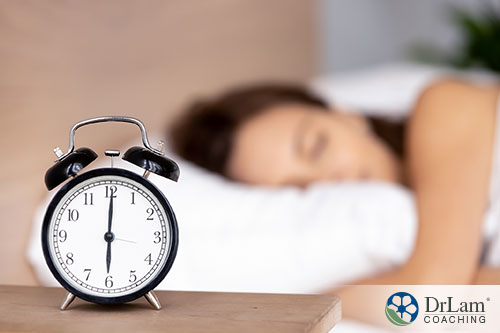 To keep your body healthy, you need more than just exercise and healthy eating. You have to evaluate and lower your risks of developing certain diseases in the future. There are so many factors, both genetic and environmental, that can increase the risk of a condition, like breast cancer. One of the important factors that can severely affect our health, is sleep. We know that a good sleep pattern and enough sleep play a vital role in our general health and well being. There is a growing interest in finding out the link between sleep and different conditions. This article discusses if there is a relationship between sleep and breast cancer.
To keep your body healthy, you need more than just exercise and healthy eating. You have to evaluate and lower your risks of developing certain diseases in the future. There are so many factors, both genetic and environmental, that can increase the risk of a condition, like breast cancer. One of the important factors that can severely affect our health, is sleep. We know that a good sleep pattern and enough sleep play a vital role in our general health and well being. There is a growing interest in finding out the link between sleep and different conditions. This article discusses if there is a relationship between sleep and breast cancer.
Most people claim that they’re either a night owl or a morning person. They are either likely to stay up until after midnight and sleep the morning away or, start falling asleep soon after dinner and get up very early in the morning. This preference for morning or evening is called the chronotype.
The sleeping pattern is largely governed by a hormone called cortisol, that’s produced by the adrenal glands. Cortisol one of the hormones that controls your internal body clock. This body clock operates in a 24-hour day-night, sleep-wake circadian rhythm. When the cortisol levels go down at bedtime, it initiates sleep and the next morning, the cortisol levels go up, when it’s time to wake up.
For decades, experts have studied different sleep patterns and what happens when it is disturbed. There is a lot of debate about whether it’s better to be a morning person or a night owl. This is usually based on factors like creativity, productivity, and susceptibility to disease. And a new study is adding to that debate by exploring the link between sleep and breast cancer.
A new link between sleep and breast cancer has been found recently. A huge study on 150,000 women aged between 40 and 70 was conducted to understand if there is a direct link. It examined the genes that were associated with sleep duration, sleeplessness, and chronotype. The researchers followed the participants closely for several years to determine how these traits might affect the incidence of breast cancer in this group of women.
 Interestingly, the study found that women who were the 'morning person', had a slightly lower risk of breast cancer, compared to those who were the 'night owls'. This difference in the extent of the risk, however, was not very significant. Even though this link between sleep and breast cancer is not conclusive, because there may be additional factors involved, the fact that there is a relationship between sleep and breast cancer can motivate a change in behavior and improve sleeping habits. Further research is needed to strengthen this argument and this would impact the general well being.
Interestingly, the study found that women who were the 'morning person', had a slightly lower risk of breast cancer, compared to those who were the 'night owls'. This difference in the extent of the risk, however, was not very significant. Even though this link between sleep and breast cancer is not conclusive, because there may be additional factors involved, the fact that there is a relationship between sleep and breast cancer can motivate a change in behavior and improve sleeping habits. Further research is needed to strengthen this argument and this would impact the general well being.
Enough sleep, as we know is crucial to reduce stress. A regular sleep pattern would help your biological clock. Waking early with the sun is a more natural rhythm for human beings. Studies have shown that those who work night shifts or if their lifestyle dictates a disturbed sleeping pattern may be prone to many conditions and disorders. In certain conditions like Adrenal Fatigue Syndrome (AFS), you may experience high, stress levels. In such cases, a good sleep routine may help alleviate the symptoms.
People with AFS often have a higher risk of breast cancer due to imbalances in the Hormonal Circuit. This is why the possible link between sleep and breast cancer is so important. Circuit imbalances occur in AFS as a result of adrenal fatigue and overuse of the NeuroEndoMetabolic (NEM) stress response. The body experiences severe stress related changes including the release of cortisol from the adrenals. When the NEM stress response becomes overworked, the adrenals are often the first to feel the pressure. They can become fatigued and start to struggle with the ongoing high demand for cortisol.
The body’s systems, circuits, and organs are interconnected and reliant on each other for normal functioning. So, as the adrenals start to degrade, it can set off widespread malfunctions in the various circuits, including the Hormonal Circuit. People who experience these malfunctions often experience a wide range of confusing symptoms that seem to be unrelated and get worse over time. That’s why it’s important to address the underlying cause of adrenal fatigue. This kind of help can be hard to find as AFS isn’t recognized by many medical professionals. As a result, AFS sufferers often find themselves trying strategies that treat the symptoms rather than the underlying problems. This can be very dangerous when it comes to imbalances in the Hormonal Circuit.
In order to understand the possible link between sleep and breast cancer, let us first discuss the Hormonal Circuit in more detail. This circuit is composed of the adrenals, thyroid, and ovaries, and they function together in unison. The three organs in this circuit produce hormones that must be in balance for continued good health. In AFS, when the adrenals become fatigued, it affects the other hormones of the circuit as well, which may trigger a chain reaction.
Estrogen is another hormone in this circuit, which is mainly produced by the ovaries and also by the adrenals and adipose tissue. This hormone is normally balanced and countered in the body by progesterone, and they work in synchrony to ensure good hormonal health. Given that high estrogen hormone levels is known to increase the risk of breast cancer, the disturbance in the hormonal circuit can put you at higher than normal risk of developing breast cancer
Unfortunately, many women with AFS experience estrogen dominance. This occurs as a result of adrenal and thyroid dysfunction as well as in response to lifestyle factors. As the adrenals become fatigued because of AFS, the resulting malfunctions can affect the functioning of the ovaries, which usually maintain hormonal control. This control can fail as AFS progresses, and the degrading health of the adrenals will only worsen the situation. The adrenal glands produce progesterone, but this function is often shut down in AFS because of the high demand for cortisol. The end result is high estrogen levels without the appropriate amount of progesterone to counter them.
 Stress factors like sleep disturbances can worsen the AFS and thereby disturbs the hormonal balance. Other lifestyle factors that can add to estrogen dominance are poor diet, hormone replacement therapy, lack of exercise, and obesity. Early symptoms of estrogen dominance include swollen breasts, irregular periods and a host of other troubling but not life-threatening symptoms. However, if not corrected this can contribute to issues such as endometriosis, fibrocystic breast disease, and polycystic ovarian syndrome. And these problems can then progress to fibroids and breast cancer.
Stress factors like sleep disturbances can worsen the AFS and thereby disturbs the hormonal balance. Other lifestyle factors that can add to estrogen dominance are poor diet, hormone replacement therapy, lack of exercise, and obesity. Early symptoms of estrogen dominance include swollen breasts, irregular periods and a host of other troubling but not life-threatening symptoms. However, if not corrected this can contribute to issues such as endometriosis, fibrocystic breast disease, and polycystic ovarian syndrome. And these problems can then progress to fibroids and breast cancer.
The only way to correct the hormonal imbalances that occur with AFS is to alleviate the underlying adrenal fatigue first. Trying to correct the imbalances in the ovarian system, before that, will only further tax the adrenals and cause additional stress and malfunction. In fact, it often makes the symptoms and the imbalances worse. Since the ovarian and thyroid systems are strongly connected to the adrenals, improving the health of the adrenal glands can significantly improve the health and functioning of the ovaries and returning the circuit to normal.
This is where knowledge about the link between sleep and breast cancer can be helpful. Poor sleeping patterns are very common in the modern world because of stress, work demands, and lifestyle issues. They’re also a common symptom of AFS because of high cortisol levels. In healthy people, cortisol levels dip when it’s time to sleep. With high stress levels, the cortisol levels stay high as well, due to an overactive adrenal. This means a morning person may convert to a night owl due to the lack of sleep.
Poor sleep will put additional stress on your body and can worsen estrogen dominance, putting you at higher risk of breast cancer. That’s why part of your AFS recovery should focus on repairing your sleeping patterns. The best way to rebalance the hormone circuit is to maintain a natural sleep rhythm. If you get an adequate amount of sleep then you would start to lower your stress levels and this will, in turn, potentially reduce the risk of breast cancer.
When you have AFS, it’s important that you correct any lifestyle issues that may be increasing your stress levels. This can include improving your sleeping patterns, reducing triggers that may disturb your biological clock and ease the hormonal imbalances. However, you need to be very careful when you make these kinds of changes. Sudden drastic changes, albeit healthy, can be stressful as well and can cause it to spiral. And that’s the last thing you need when you have AFS. This is the primary reason why you should consult with a medical professional who’s aware of AFS and can help you make lifestyle changes safely and effectively.
 There’s another issue that’s raised by the possible link between sleep and breast cancer. Although waking early is a more natural human rhythm, everyone is different. Some people are naturally night owls, and trying to disrupt this rhythm can also cause stress. This will lead to poor sleep, and frustration. It is therefore important that you look at this advice through the lens of your own experience and natural tendencies.
There’s another issue that’s raised by the possible link between sleep and breast cancer. Although waking early is a more natural human rhythm, everyone is different. Some people are naturally night owls, and trying to disrupt this rhythm can also cause stress. This will lead to poor sleep, and frustration. It is therefore important that you look at this advice through the lens of your own experience and natural tendencies.
Everyone has a natural preference for when they sleep and wake. This preference can be very difficult to change on a permanent basis, and most people will just have to work around it. Being a morning person or a night owl will affect more than your daily schedule and energy levels. As research continues to explore the link between sleep and breast cancer, the evidence suggests that maintaining a normal sleep pattern is important. It could be a pivotal factor in your present and future health and in the good functioning of your Hormonal Circuit.
© Copyright 2021 Michael Lam, M.D. All Rights Reserved.
There are several links between sleep and breast cancer. You probably know that lack of sleep increases your risk of certain cancers, including breast cancer. But there is also evidence that suggests that whether you’re a night owl or a morning people may impact your risk level.
